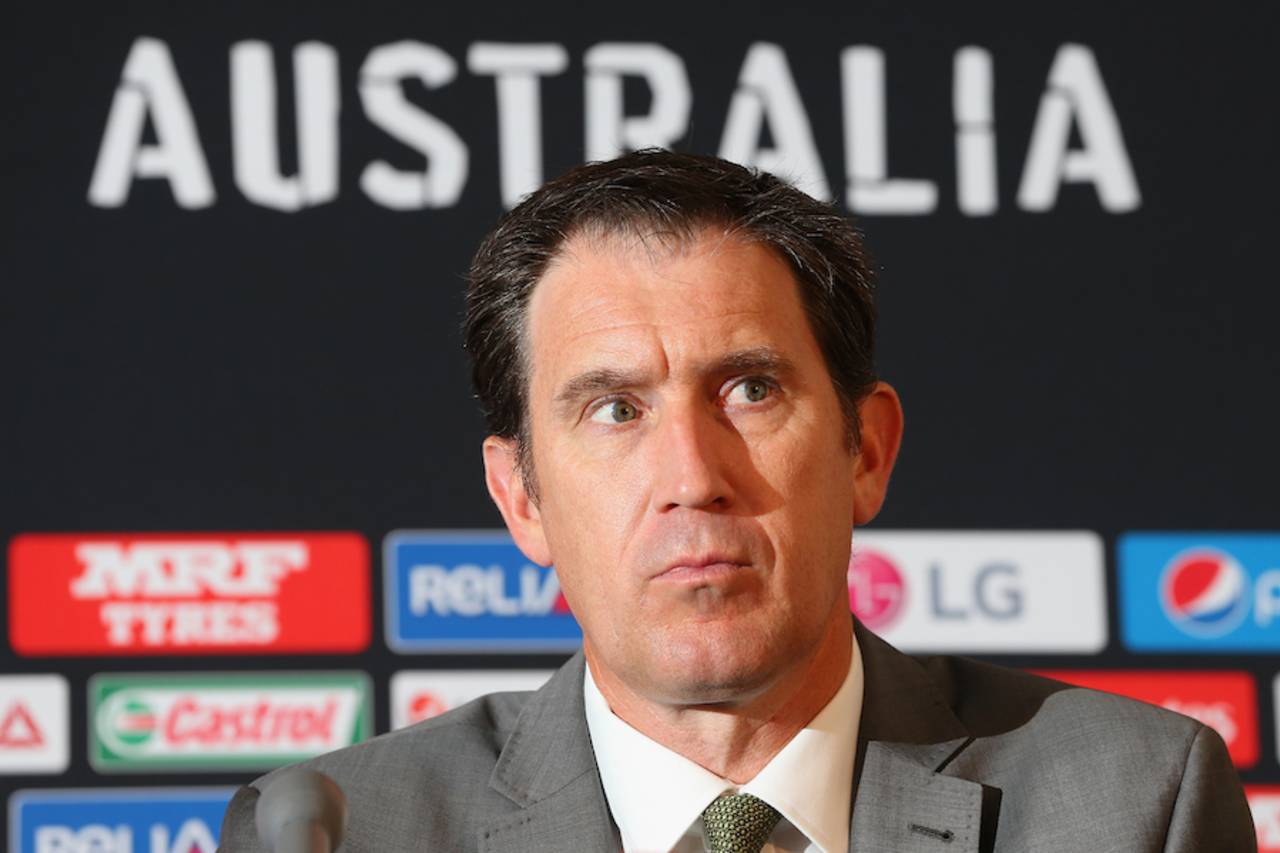Cricket Australia chief executive
James Sutherland has declined to intervene in the pay dispute between the board and the Australian Cricketers' Association (ACA) on his return to the head office last week.
The players have maintained their calls for Sutherland to negotiate CEO-to-CEO with his opposite number Alistair Nicholson as the best way to resolve a standoff that has left around 230 of the nation's elite players out of contract and all players refusing to take part in tours until a new MoU is agreed. However, ESPNcricinfo has learned that Sutherland indicated his unwillingness to get involved after returning to Melbourne from a visit to England on ICC duty.
In Sydney on Sunday, the ACA's executive passed a resolution stating that: "The players affirm their view that third party mediation at CEO level remains the right process to resolve the current impasse."
Reticence from Sutherland to get involved in the dispute - apart from sending a terse letter on May 12 stating that out of contract players would be unemployed should no agreement be reached after the expiry of the June 30 deadline - maintains his customary position of delegating industrial relations to other senior executives. However, he has historically entered talks late in the process to ensure their smooth progression.
Negotiations over the next MoU have instead been led by Kevin Roberts, a former board director now employed as CA's head of strategy and people, with strong involvement from the CA chairman and former Rio Tinto managing director David Peever. In addition to expressing his own strong views about needing to break up the revenue sharing model reducing the influence of a "third party" in the workplace, Peever added his own industrial relations advisor, Ken Bacon, to the negotiating team.
Another former Rio Tinto executive, Mark O'Neill, is also now working at CA as the head of a new public affairs department, communications, government relations and infrastructure. O'Neill's appointment was revealed in February as part of a wider executive restructure that also saw the head of the Big Bash League, Anthony Everard, appointed as executive general manager for events and leagues.
Roberts' position mirrors that of Sutherland himself when he was first hired by the former chief executive
Malcolm Speed to oversee financial and MoU matters at what was then the Australian Cricket Board. After three years in that role, Sutherland was elevated to the role of CEO, and it is widely expected that Roberts will be in line to succeed Sutherland whenever either the incumbent or the board decide it is time for change.
"Kevin Roberts is an incredibly good operator, an incredibly smart and capable man but it's got to the point where this needs to get resolved," former Test opener
Ed Cowan told
Sky Sports Radio. "We want it to be resolved, everyone in the game wants it to get resolved. Whatever it takes for it to be resolved, if that means the CEO [needs] to get to the table, that's what we're calling for."
A key to any succession, or Sutherland's retention, will be the outcome of the current dispute, which on Monday saw state players and also the Australia A squad taking part in pre-season training without being under contract. The Australia A squad has effectively given CA and the ACA until Friday to make progress in MoU talks while going about their pre-tour training camp in Brisbane as usual, while reserving the right
to withdraw from that tour or any subsequent ones if there is no sign of a resolution.
Much of the players' discontent relates to the desire to remain partners in the game by sharing in its revenue. The current CA offer to the ACA has been used as an example of why reverting to employee status would leave the board without accountability and the players with inferior terms of pay and conditions to those they enjoyed before June 30.
Cowan made this point on Monday by pointing out the difference between average domestic player wages quoted in CA's offer - A$235,000 per player by 2021-21, including combined state and BBL contracts, Superannuation and prize money - and the real median wage level of state contracted players - less than A$100,000.
"The median [state contract] income for a domestic player is less than $100,000," Cowan said. "We're trying to compete with other sports, attract talent, and yet domestic players, particularly those who don't play in the Big Bash, do not get paid very well.
"Averages and medians are very different numbers. What CA likes to do is average the top contract with the bottom contract and say 'that's your average player'. But we've got 20 people in our [New South Wales] squad, and 70% of them will be within A$20,000 of the base contract. The top contract is within A$40,000 of the bottom contract, and there's a A$70,000 gap between that and the [CA offer] average. No-one's even close to that.
"Across the states, I've talked to players from every single state, I've played for two states, and been a senior player in both those states."
CA revised its offer to the players a week ahead of the June 30 MoU expiry by offering to include all players - male and female, international and domestic - in its capped bonus model and also offered to increase wage levels being offered to domestic male players. However, this was rejected by the ACA due to a lack of detail and the continued absence of revenue sharing.
Daniel Brettig is an assistant editor at ESPNcricinfo. @danbrettig
